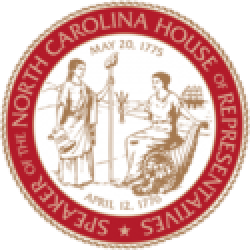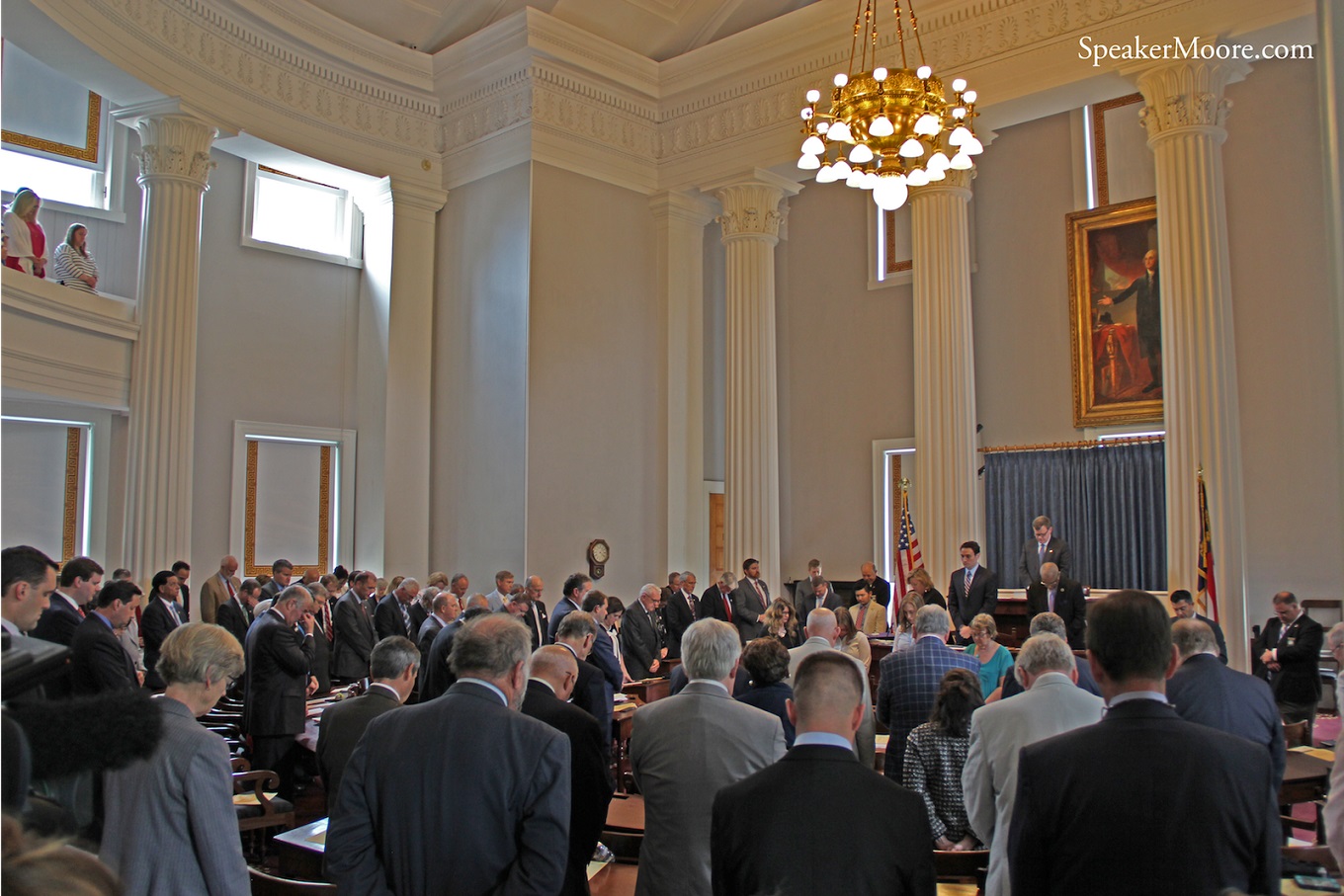
House Finance Committee Co-Chairman John Szoka (R-Cumberland) introduced the House tax proposal:
“The House, and the Senate, since 2011 have focused on sound economic and tax policy that have led to substantial surpluses in Fiscal Year 2015, 2016 and 2017, a rainy day reserve of $1.2 billion and the extended unemployment debt of over $2.5 billion being repaid ahead of the federal schedule,” Szoka said.
“There are differences between the (House and Senate) finance packages, but I assure you that the goal of both finance packages is exactly the same; to continue the good work that we have accomplished since 2011; to continue to be respectful of taxpayers’ dollars, to continue to modernize our tax code and to make North Carolina the best economically performing state in the union.”
The House budget’s tax proposal also increases from $20,000 to $22,000 the cap of the mortgage expense and property tax deduction for itemizers, effective for taxable years beginning on or after January 1, 2019, offering mortgage holders in North Carolina additional savings on their income taxes.
The House proposal also would reduce the franchise tax rate to $1.40 per $1,000 of the required base. The rate reduction would become effective for taxable years beginning on or after January 1, 2019, and would be applicable to the calculation of franchise tax reported on the 2018 and later corporate tax returns.
“Lower taxes in itself is a great economic incentive both for companies that have been here for quite some time and those that we’re trying to attract to North Carolina,” said Szoka.

The House budget tax proposal further provides a sales tax exemption for distribution equipment purchased by large customer fulfillment centers under criteria similar to the current provision for “large manufacturing and distribution facilities.” A “large fulfillment center” is a facility used primarily for receiving, inventorying, sorting, repackaging, and distributing finished retail products for the purpose of fulfilling customer orders.
“We have all seen the economy transition, and we want to encourage manufacturing here in North Carolina. We also recognize there has been a huge increase in fulfillment centers,” Szoka said.
“These fulfillment centers typically take a great deal of investment and they employ a lot of people. We have actually missed opportunities the last few years because we haven’t recognized the role these fulfillment centers are now playing in our economy.”
Under current law, purchasers of mill machinery pay tax at a preferential rate of 1% of the purchase price with an $80 cap. The House proposal would move mill machinery into a sales tax exemption.
“We feel this is very important to remain competitive in the Southeast, in particular with our neighboring states,” Szoka said in reference to the mill machinery tax repeal. “Tennessee, Virginia, South Carolina and Georgia all have a zero tax on their equivalent mill machinery laws. When you speak to economic developers and corporate developers looking for places to move their companies, this always comes up, and it is a major factor in where businesses decide to locate.”

The House proposal further creates a new sales tax refund for small and rural research and development businesses, effective for sales made on or after July 1, 2018. The maximum total amount of refunds allowed to all eligible businesses in a calendar year would be capped at $15 million.
“This is targeted at biotech industries and other capital intensive small start-ups. Research and Development is a competitive advantage in North Carolina and we want to best leverage innovations occurring in our universities and encourage entrepreneurship,” Szoka continued.
“When you talk to the biotech industry and the IT industry and these highly technical small businesses that are sprouting up around the state, we believe that for a very small investment this will facilitate businesses growing and actually attract more capital to the state.”
Last decade the Democrat-led General Assembly raised sales taxes in 2003, 2005, 2007 and 2009, and still dug a fiscal hole, including $2.5 billion in debt and hundreds of millions of dollars in budget deficits for programs like Medicaid, for Republicans to fix in 2011.
This Decade: Teacher pay raises every year since 2013
Last Decade: Teacher pay cuts in 2009 after lagging all decade
This Decade: Lower sales tax rates, lower income tax rates, lower corporate tax rates, billions in taxpayer savings.
Last Decade: Sales tax increase in 2003, 2005, 2007 and 2009, billions in higher taxes on North Carolinians.
Economic Accolades for North Carolina 2016-2017
- North Carolina to post substantial budget surplus 3rd year in a row as estimated 31 states grapple with shortfalls. Tax Foundation May 2017
- North Carolina tourism generates record visitor spending in 2016. WRAL May 2017
- North Carolina ranks #1 in Site Selection’s Magazine’s Prosperity Cup, an index of economic drivers. Triangle Business Journal May 2017
- Unemployment drops in North Carolina, state adds 111,111 jobs over year. NC Department of Commerce April 2017
- North Carolina hotels set record high occupancy rates, room revenue growth doubles national average. VisitNC Lodging Report March 2017
- North Carolina excels in Fiscal Survey of States. National Association of State Budget Officers March 2017
- North Carolina ranked #1 in the United States for IT employment growth by Tech Association study.Triangle Business Journal February 2017
- Raleigh and Charlotte named #2 and #7 in “America’s Top Spots for Tech Jobs. Forbes August 2016
- North Carolina has had the country’s fastest-growing economy. Politifact April 2016
- By G.D.P., North Carolina had fastest growing large economy in the nation.’ Triangle Business Journal March 2016
Background:
North Carolina Republicans have cut taxes for families and businesses by over $4.5 billion this decade, and the state reported a $552 million budget surplus in February 2017.
In 2011, General Assembly leaders resisted demands from then-Governor Perdue to permanently install a $1 billion annual sales tax increase. State taxpayers enjoy a lower and consistent 4.75 percent sales tax rate on all their purchases under Republican leadership, in addition to significant income tax reductions.
Despite being handed a $3 billion budget gap for the 2011-12 fiscal year, North Carolina General Assembly budget writers also provided nearly half a billion dollars in small business tax relief.
North Carolina’s estate tax – also known as the “Death Tax” – was repealed January 1, 2013.
Beginning in January 2014, the individual income tax fell from a top rate of 7.75 percent to a simplified, single 5.8 percent rate. Along with lowering rates, a larger standard deduction of $7,500 of income for singles and $15,000 for married filers was created.
In 2015 the North Carolina General Assembly cut personal income taxes for the second time in three years. Starting in 2017 North Carolina’s personal income tax rate dropped from 5.75 percent to 5.499 percent and the standard deduction increased by $500.
North Carolina’s corporate tax rate – formerly highest in the southeast at 6.9 percent – was reduced to 6 percent in 2014, 5 percent in 2015, 4 percent in 2016 and 3 percent in 2017. Among states that have a corporate tax, North Carolina now has the lowest in United States.


